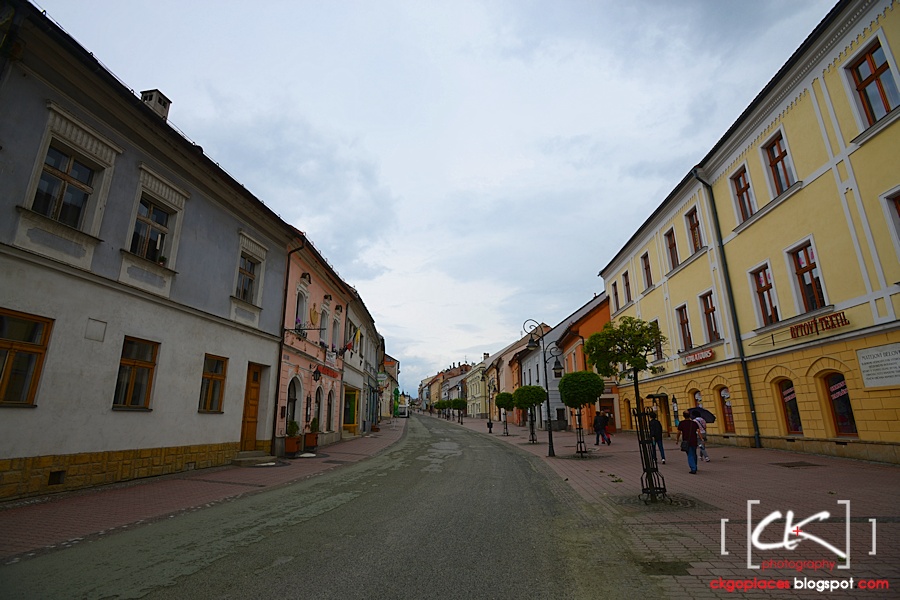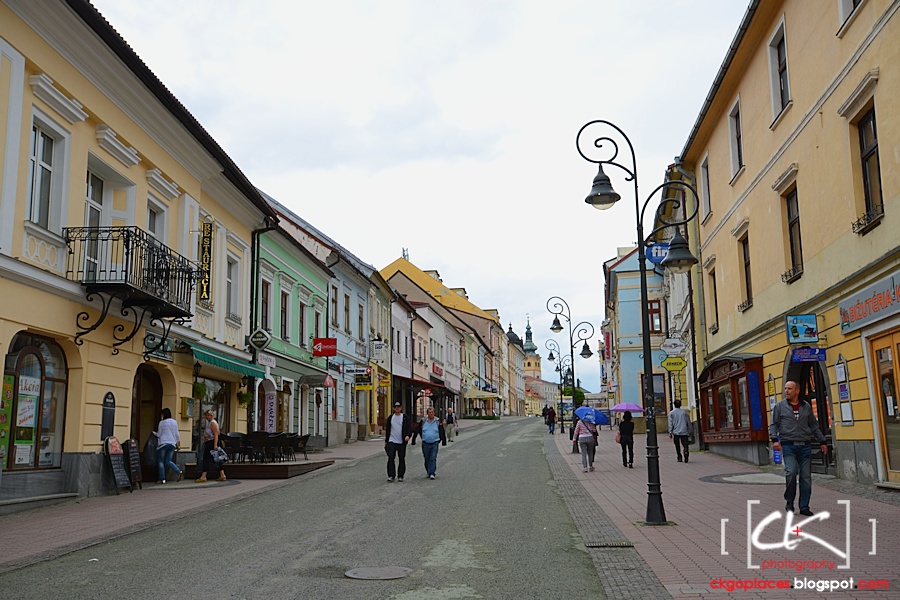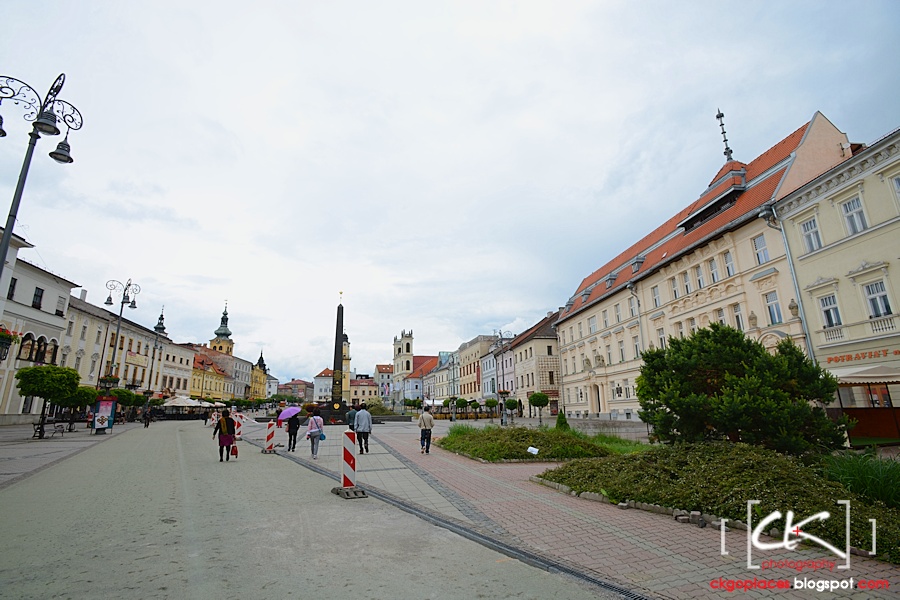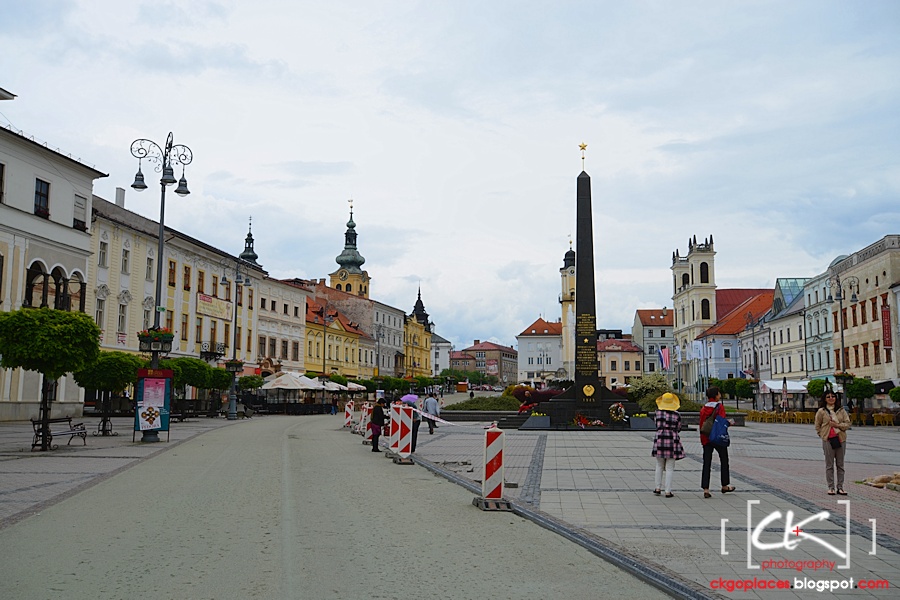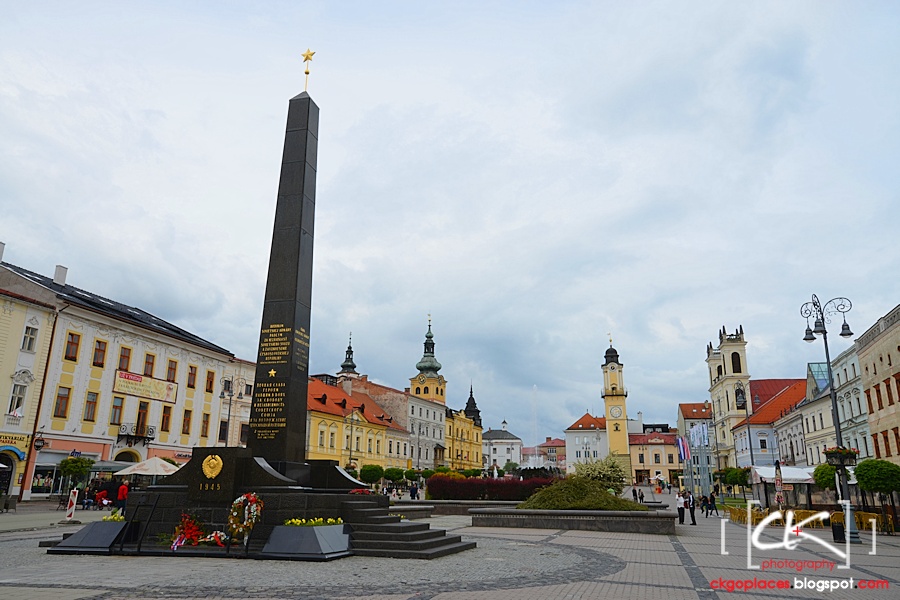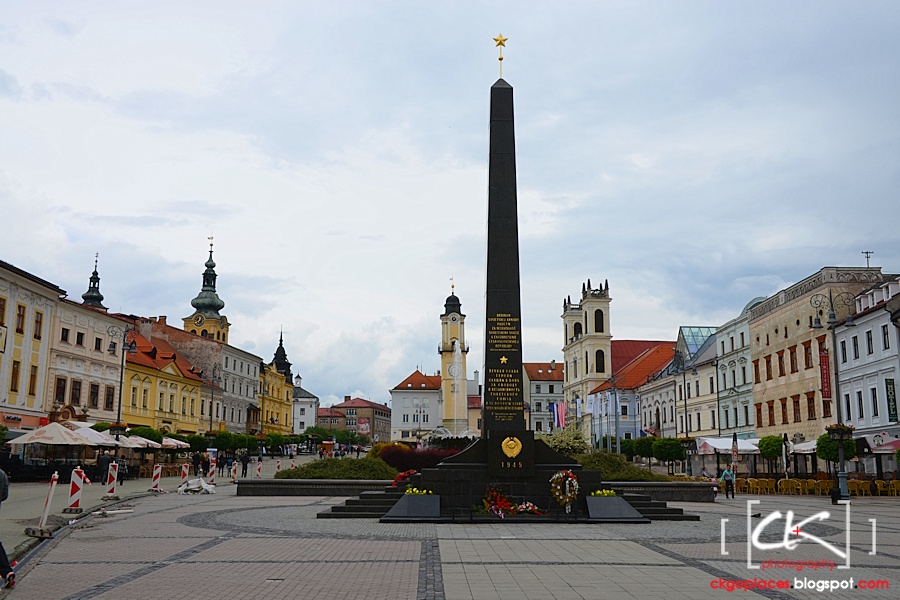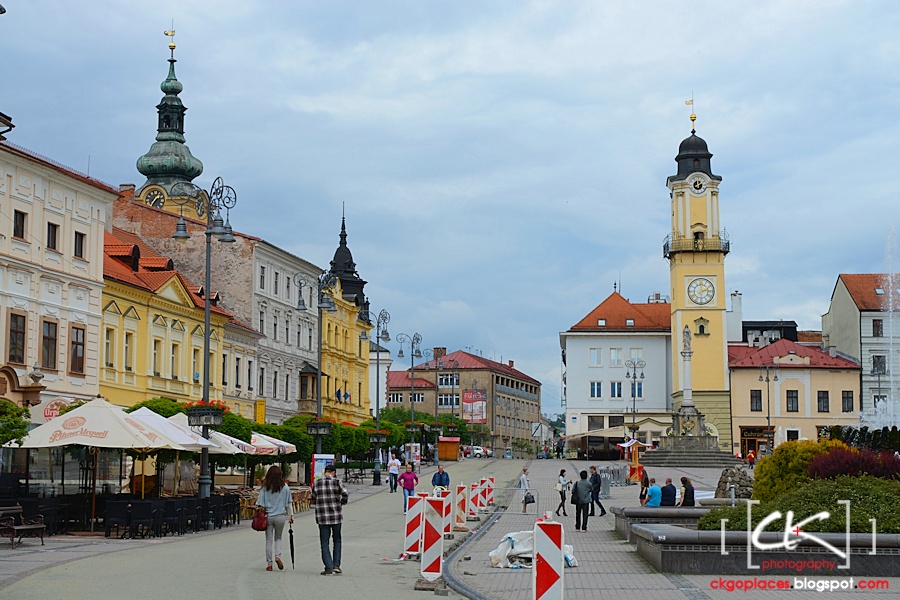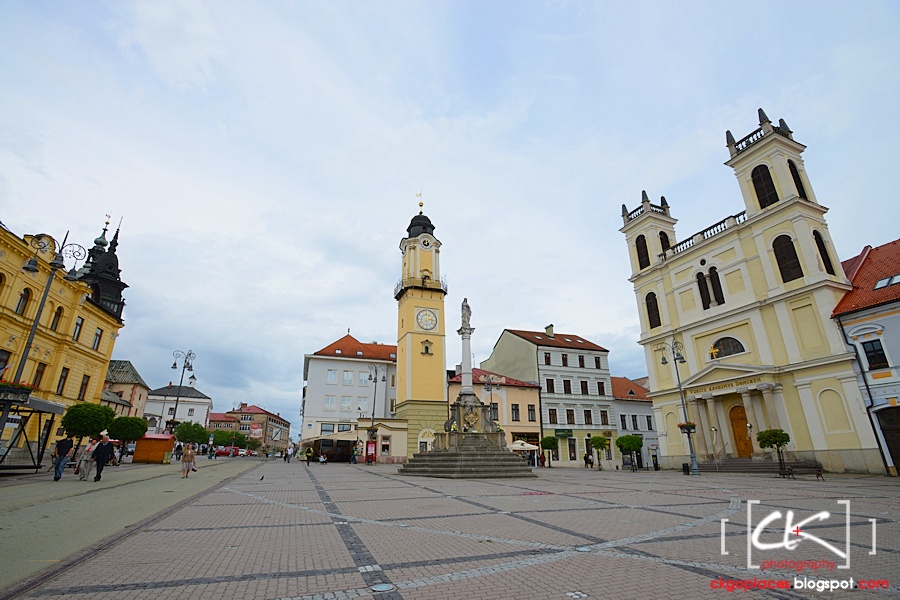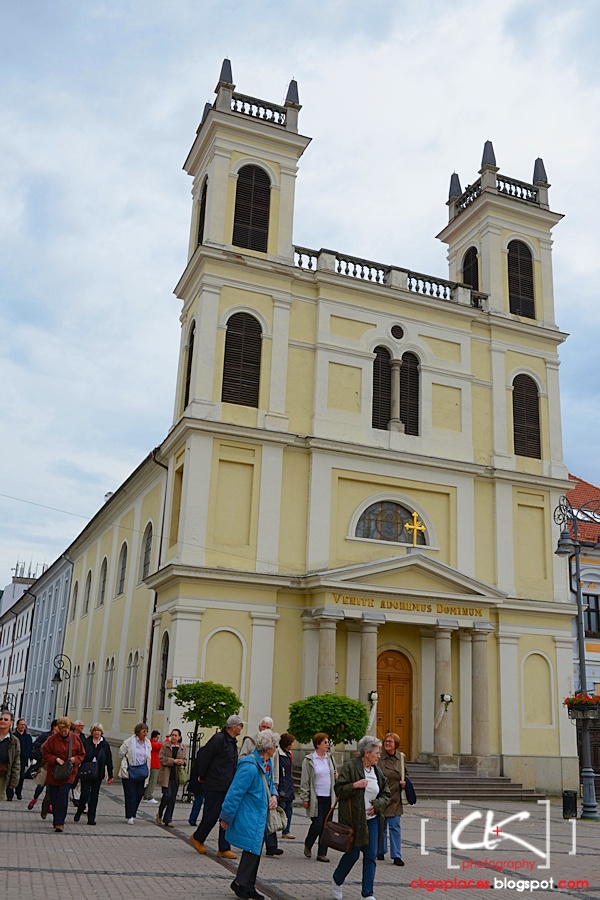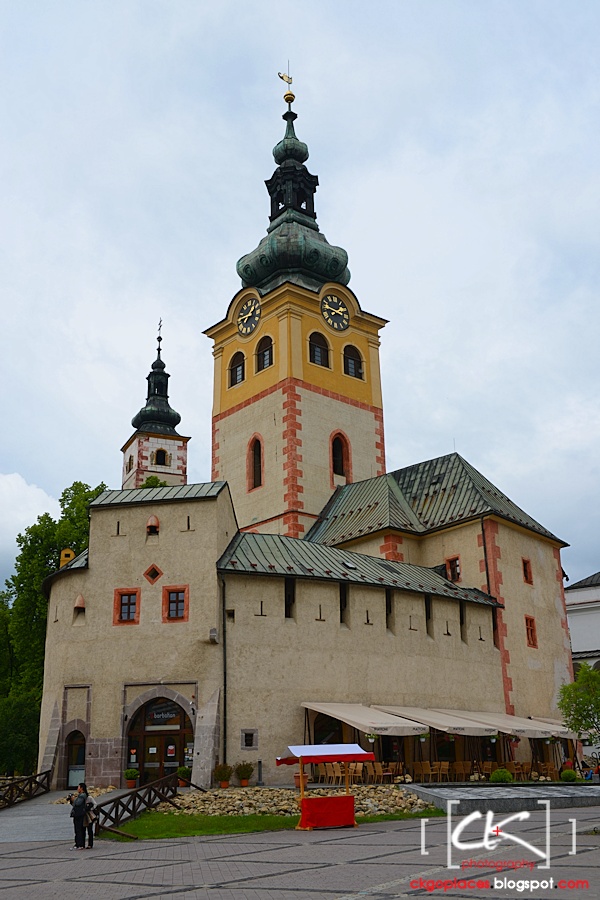Banská Bystrica is the sixth largest municipality situated at central Slovakia. It was also one of the earliest Slovak towns. It started off as a copper mining town and acquired its Late Middle Ages setting later which makes it very picturesque.
The main attractions of Banská Bystrica are concentrated around the SNP Square (Námestie SNP) of which the name was derived from the Slovak National Uprising.
Somewhere near the centre of SNP Square is the black obelisk honouring the Soviet soldiers killed during the liberation of the city in 1945.
At the middle-end part of the square stands the leaning clock tower built in 1552. It is 40 centimetres off centre at the top.
To the right of the leaning clock tower is the St. Francis Xavier Cathedral which started to be constructed in 1702 and came to a six-year halt since 1703 due to the anti-Habsburg troops occupation. The construction of the cathedral resumed in 1709 and it was completed in 1715. In front of the cathedral is the St. Mary's pole or the plague column erected in the 18th century in gratitude to the auspices of Virgin Mary for ending a deadly plague.
Somewhere off the SNP Square is the town castle area with the remains of the fortifications, a barbican, a parish church and the Church of the Holy Cross.
